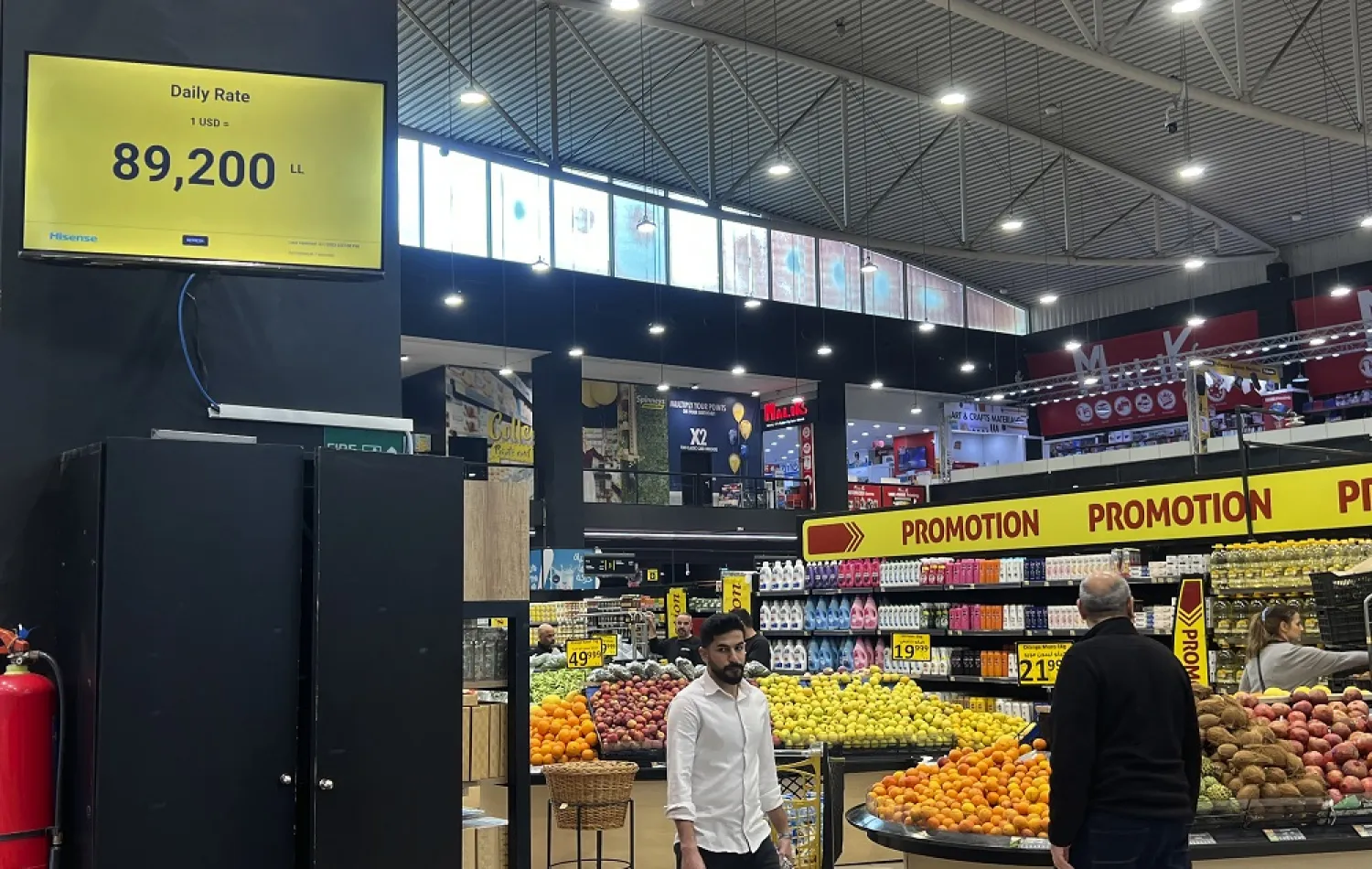Supermarkets in Lebanon started pricing items in US dollars on Wednesday instead of the nose-diving local currency, after a government announcement allowing the practice in a country heavily reliant on imports.
Since late 2019, Lebanon has been facing a dramatic economic crisis that has seen poverty rates climb to reach more than 80 percent of the population, according to the United Nations.
The local currency, now officially pegged at 15,000 to the greenback, was trading Wednesday at almost 90,000 to the dollar, compared to 60,000 in late January.
An AFP photographer said a large supermarket chain in Beirut had begun displaying prices in dollars on Wednesday, while the exchange rate of 89,000 pounds was displayed on a screen at the entrance.
Domestically produced fruit and vegetables were still priced in the local currency.
"Every week, or every day even, products are becoming more and more expensive," said Susane Zeitoun, 28, who was shopping at the supermarket.
"Now I have to calculate prices into Lebanese pounds," she added.
In February, Economy Minister Amin Salaam announced that supermarkets would be able to start pricing items in dollars, while customers could pay in dollars or Lebanese pounds at the volatile market rate.
Each store would have to clearly announce the exchange rate it was using each day, he had added.
Since the start of the crisis, stores had begun to adjust their prices in pounds, sometimes daily, to keep up with the fluctuating exchange rate -- or at times pushing prices higher.
Some restaurants and clothing shops had already begun to display prices in dollars in recent months.
Shopper Sarah Rida, 37, said that "pricing items in US dollars is better".
"If a product is priced at $2, we can be sure that it will stay the same and will not increase or decrease in price from one day to the next."
Lebanon is being run by a caretaker government and is also without a president, as lawmakers have repeatedly failed to elect a successor to Michel Aoun, whose mandate expired at the end of October.
Authorities announced in late February that customs charges would be tripled, a move that risks pushing prices up further.
The World Bank has said that Lebanon food price inflation reached 332 percent year on year in June 2022, the worst in the world.









